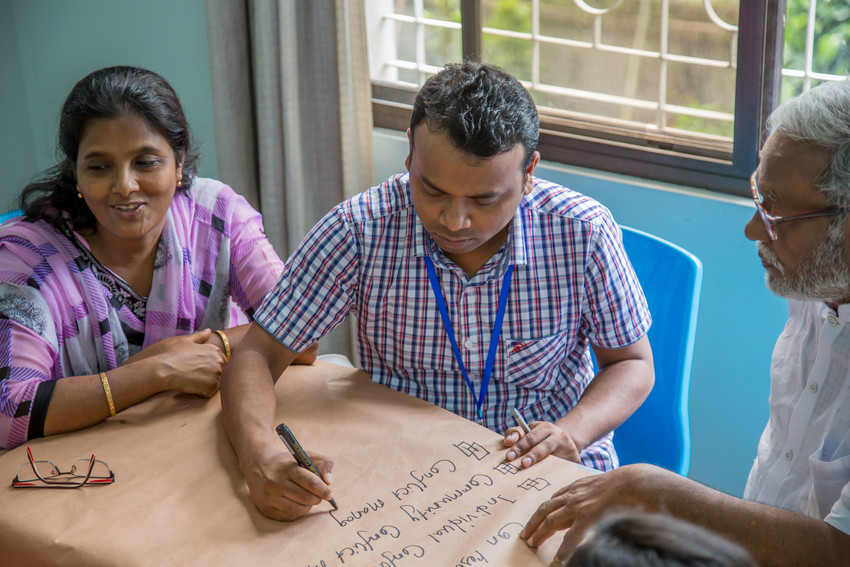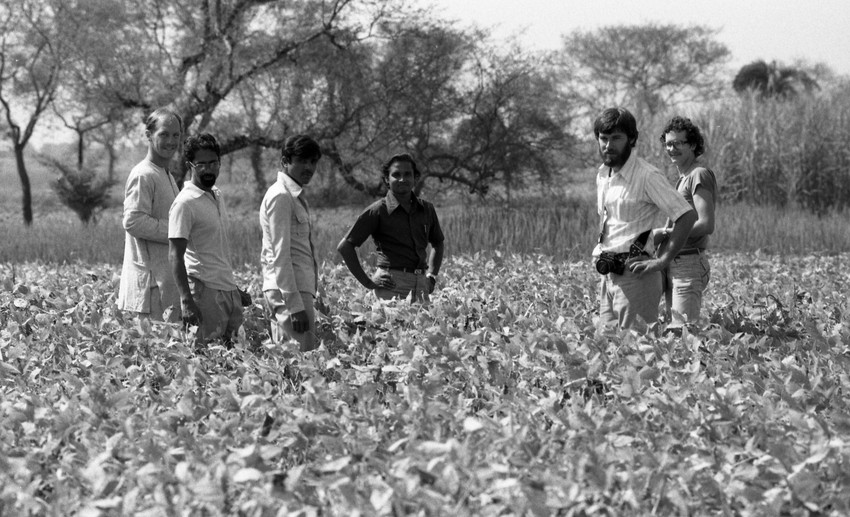[Individual articles from the Spring 2020 issue of Intersections will be posted on this blog each week. The full issue can be found on MCC’s website.]
While on staff at the MCC Washington Office in the late 1990s, I walked into the office of Senator Arlen Specter of Pennsylvania to talk about the Jubilee 2000 Campaign. This dynamic movement advocated for cancelling the massive debts that low-income countries owed to wealthy nations and international monetary institutions. I asked the aide to the Senator if he had received letters from Mennonites about Jubilee 2000. He waved his hand in dismay and vigorously nodded his head saying, “We have plenty of letters; don’t need any more letters. We’re on board!”
This positive response was a remarkable turn-about. When I first came to Washington with MCC in 1995, Congress was hostile to cancelling these debts. Fellow advocates told me, “We can talk to the Administration about this. We can talk to the World Bank. But don’t let Congress know that we’re promoting debt cancellation because they hate this idea!”

The Jubilee 2000 Campaign changed that. The Campaign originated with a call by the All-Africa Conference of Churches, which identified the approaching millennial landmark as an opportunity to apply the biblical year of the Jubilee in which debts are forgiven and people given a new start in life. Their challenge was taken up by Christian Aid and others in the United Kingdom, by a U.S. church-based coalition called Jubilee 2000 USA that included MCC and ultimately by some 60 country campaigns around the world. Jubilee 2000 mobilized people of faith from a wide range of participating religious groups: the Catholic Church, mainline Protestant denominations, peace churches and evangelicals, as well as Jewish and Muslim organizations. Polls indicated that the idea of debt cancellation for poor countries was never popular with U.S. society as a whole—churches and religious organizations embraced and drove this effort.
The MCC Washington Office mobilized its Mennonite constituents and served on the Jubilee 2000 Executive Committee. MCC had an important impact on policy makers because of the time and effort it dedicated to this ecumenical effort, but even more because Anabaptists “in the pews” chose to raise their voices on behalf of neighbors in need.
The relatively short time it took to pass debt cancellation legislation surprised many in Washington. Senator Ted Kennedy asked a prominent Jubilee campaigner how they were able to succeed in just a few years, noting that he usually expected at least a ten-year process for any reform effort. Rep. Spencer Bachus, at the time chair of the House Financial Services Committee and lead Republican backer of the legislation, thanked Jubilee 2000 advocates for “giving me the opportunity to do the kind of thing that I came to Washington hoping to accomplish.”
Because of your [advocacy for debt cancellation], Uganda now has medical clinics with doctors and medicines that didn’t exist before and schools with teachers and text books they didn’t have before. There are children alive today because of what you’ve done.
— Charlotte Mwesigye,
Jubilee 2000 Uganda
Uganda was the first country to have its debts cancelled. Ugandan churches and civil society united to make sure that the money saved from debt cancellation was dedicated to poverty reduction efforts. They created a network of monitors across Uganda at the village level to make sure that budgets for education, health care and other social services were actually increased. In 2000, the Jubilee U.S. coalition brought Charlotte Mwesigye, the coordinator of Jubilee 2000 Uganda, to the U.S. to talk to churches around the country about its impact. She said something I’ll never forget. “I want you to understand what your work has accomplished,” she told us. “Because of your work, Uganda now has medical clinics with doctors and medicines that didn’t exist before and schools with teachers and text books they didn’t have before. There are children alive today because of what you’ve done.”
That accomplishment belongs to Anabaptists in the U.S. whose letters overwhelmed Senator Specter’s office and to the caring people of faith who took time to “speak out for the cause of the destitute and for all those in need’ (Prov. 31:8,9). Jubilee 2000 saw many Anabaptists in the U.S. engage public officials, some perhaps for the first time. It was an extraordinary demonstration that advocating for humane public policies can save and transform many lives. That conviction carries on today among Anabaptists speaking out for compassionate government policies and action to end U.S. and global poverty, press for racial justice, overhaul a broken immigration system and protect the rights of Dreamers and asylum seekers. During this difficult time in our national life in the United States, the Jubilee 2000 Campaign can be a reminder and an encouragement that much is possible, much is yet to do and much fruit can yet be harvested for justice and compassion in our nation and world.

Martin Shupack is director of advocacy for Church World Service. He worked with the MCC Washington, D.C., office from 1995 to 2005.
